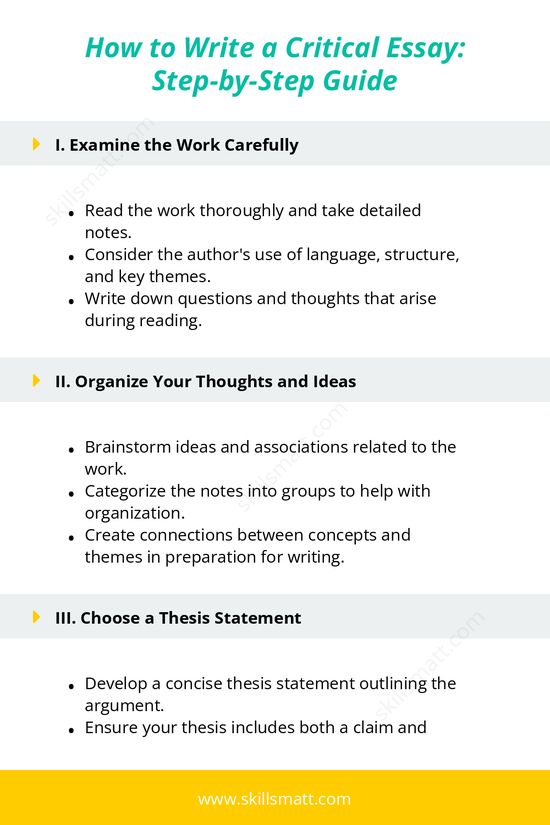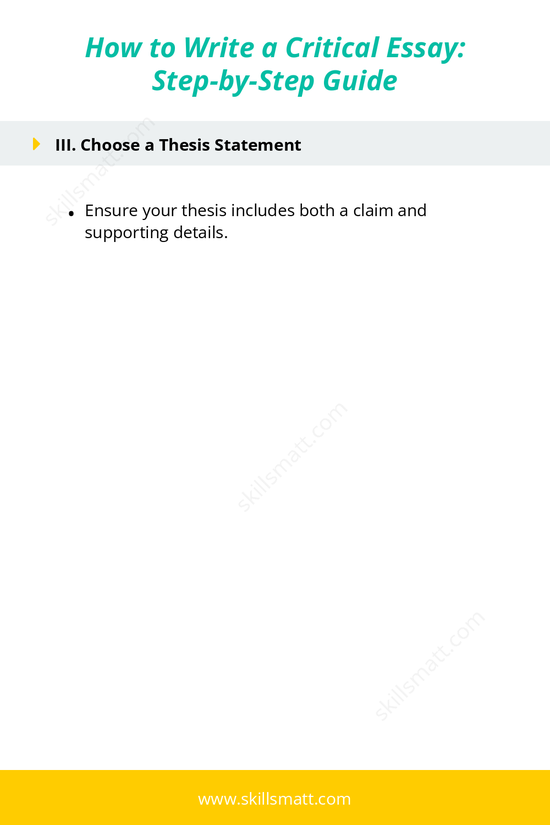How to Write a Critical Essay: Step-by-Step Guide
I. Examine the Work Carefully
- Read the work thoroughly and take detailed notes: Begin by reading the work carefully to gain a comprehensive understanding. Take notes on key elements like themes, structure, and character development.
- Consider the author's use of language, structure, and key themes: Pay attention to how the author uses language, how the work is structured, and the main ideas being communicated. This will form the basis of your analysis.
- Write down questions and thoughts that arise during reading: As you read, jot down any thoughts, questions, or impressions that arise. This will help you focus your analysis and support your thesis later.
II. Organize Your Thoughts and Ideas
- Brainstorm ideas and associations related to the work: Start by brainstorming key concepts, themes, or patterns that emerge from the work. This will help guide the development of your essay.
- Categorize the notes into groups to help with organization: Group similar thoughts together so that you can identify major themes, characters, or issues. This organization will serve as the foundation for your essay's structure.
- Create connections between concepts and themes in preparation for writing: Linking ideas and creating connections between them will help clarify your argument and provide a solid framework for your essay.
III. Choose a Thesis Statement
- Develop a concise thesis statement outlining the argument: The thesis statement should clearly express the central argument you will be making in your critical essay. It should be specific and reflect your analysis.
- Ensure your thesis includes both a claim and supporting details: Your thesis should not only present a claim but also suggest the reasoning and evidence that will support your argument throughout the essay.
IV. Develop the Outline
- Outline the critical essay structure with main points to be discussed: Create an outline that organizes your essay into a clear structure, including introduction, body paragraphs, and conclusion. Each body paragraph should focus on a specific point supporting your thesis.
- Plan where supporting evidence will be used to back up the thesis: Identify where you will place quotes, examples, or specific references that support your thesis and help substantiate your arguments.
- Consider potential counterarguments to address in the essay: A critical essay should consider and address opposing views or counterarguments. This will make your analysis more nuanced and persuasive.


